Cancer discovery news
Our researchers are making the discoveries that defeat cancer. Read the latest findings from our world-leading research.
Visit our main news hub to read about news on new funding, our fundraising activities and much more. If you want to keep updated on our news, you can follow us on social media or sign up for our Search newsletter.
If you’re a journalist and want to find out more, you can contact our media relations team.
.jpg?sfvrsn=76dc3c2_2)
Landmark Nature papers unveil ‘dark matter’ shaping cancer behaviour
Cancers can evolve to become more aggressive without relying only on DNA mutations, two major studies published simultaneously in Nature reveal.
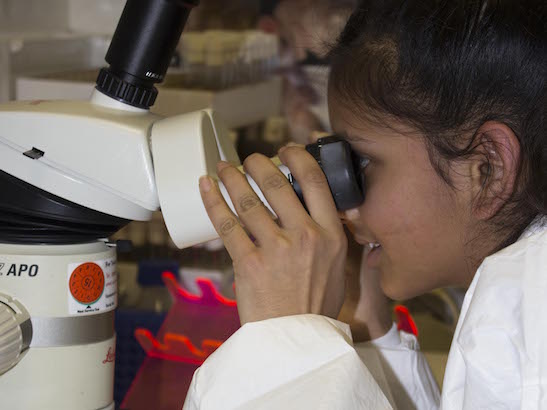
ICR ranked amongst top UK universities for partnerships and public engagement
The ICR has been rated as one of the UK's top higher education institutions in three categories in the latest Knowledge Exchange Framework (KEF), a Government assessment of universities' influence on society.
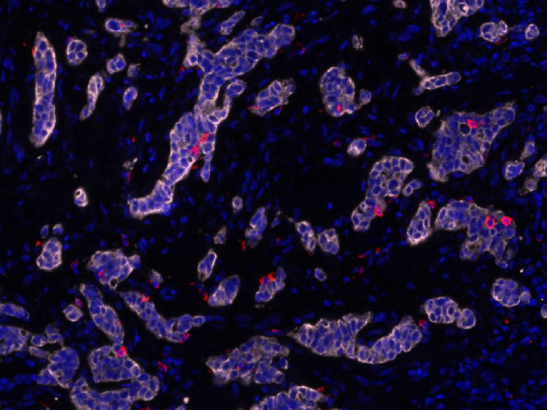
Study opens route to overcoming drug resistance in stomach cancer
Scientists have shown how stomach cancers can dodge the effects of a promising new experimental treatment – raising the possibility of outsmarting cancer by predicting drug resistance in advance.
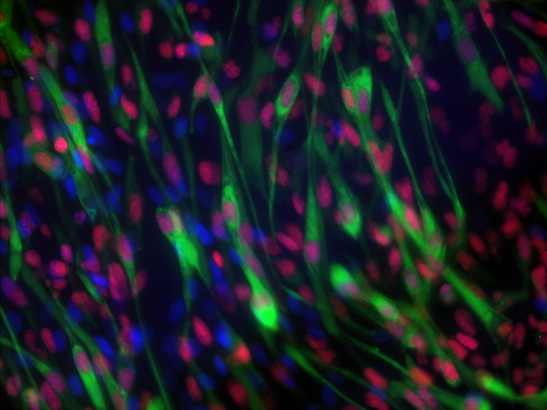
Blood tests could offer smarter treatment for children’s cancer
A simple blood test could help guide the treatment of children with the cancer rhabdomyosarcoma, a new study reports.
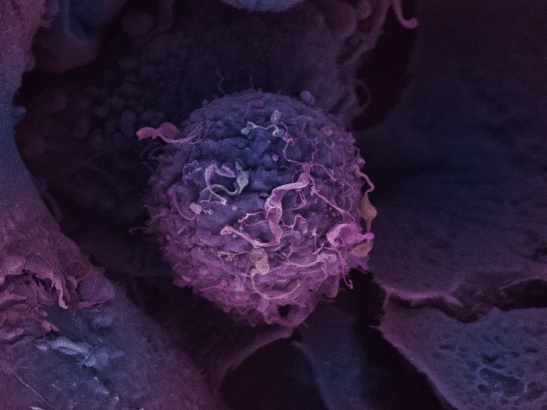
Triple negative breast cancer’s reliance on sperm and egg production proteins may offer new treatment pathways
Scientists have discovered the key role of a series of proteins in the survival of some triple negative breast cancers.
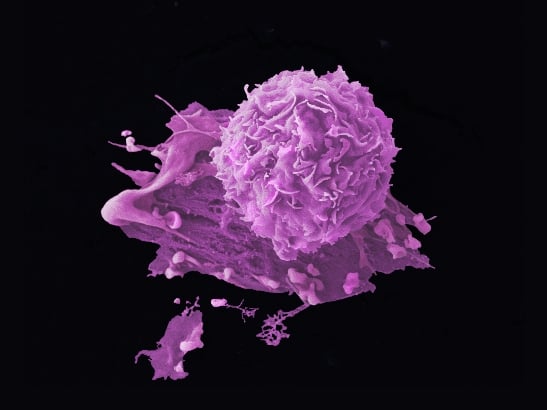
Immune targets for chemotherapy-resistant breast cancers identified
Researchers perform a deep dive into the different immune markers within tumour tissue and blood samples of early breast cancer patients whose cancer failed to respond to chemotherapy given to them prior to surgery - the findings could help tailor pre-surgical treatment.
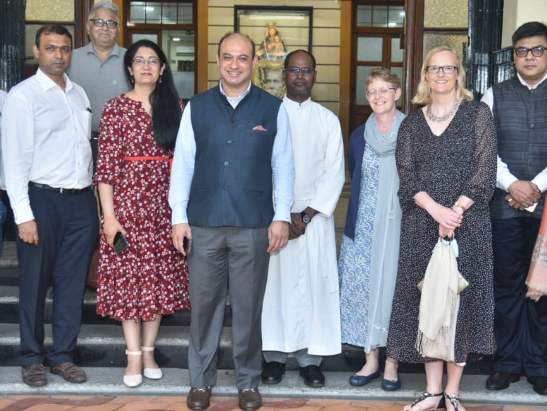
World Cancer Research Day: how international collaborations benefit the global cancer research community
The Centre for Global Oncology will help to to connect and develop cancer scientists around the world.
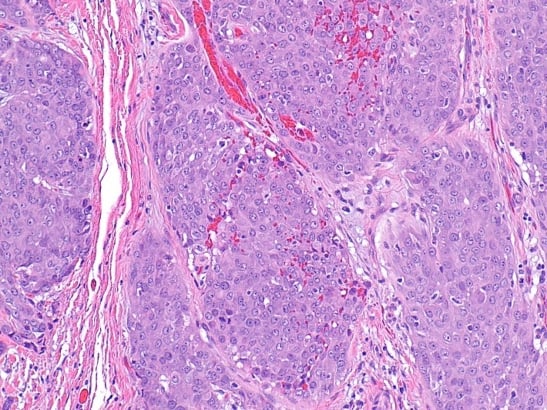
Genetically modified herpes virus delivers one-two punch against advanced cancers
A new genetically engineered virus has delivered a one-two punch against advanced cancers in initial findings from a phase I trial.
-being-attacked-by-two-cytotoxic-t-cells-(red)-547x410.tmb-hbmobile.png?Culture=en&sfvrsn=8f59440b_2)
Deliberately damaging DNA could boost the effectiveness of immunotherapy in kidney cancer
DNA damage is one of the foundational causes of cancer. But researchers have now found that deliberately causing DNA damage – by delivering additional treatments like radiotherapy – could improve the effectiveness of immunotherapy for some people with kidney cancer.

ICR statement on the death of Her Majesty The Queen
It is with deep sadness that The Institute of Cancer Research, London, marks the death of Her Majesty The Queen.
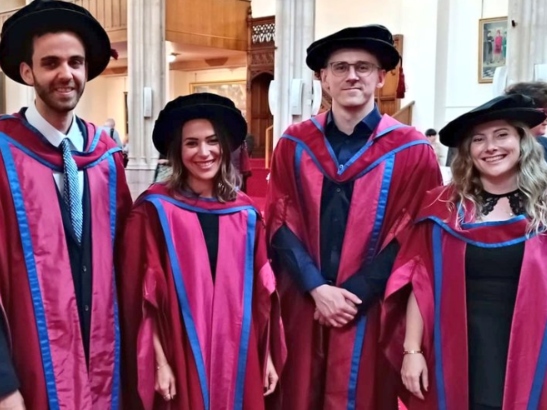
Prizes and celebrations at ICR’s biggest ever student graduation ceremony
At our annual awards ceremony this week, The Institute of Cancer Research, London, celebrated the hard work of our graduating students and recognised their outstanding achievements.

Artificial intelligence unlocks ‘treasure trove’ of billions of cancer samples
Scientists have developed an artificial intelligence (AI) method that could unlock a research ‘treasure trove’ of cancer genomes from billions of preserved tissue samples stored routinely at hospitals over decades.